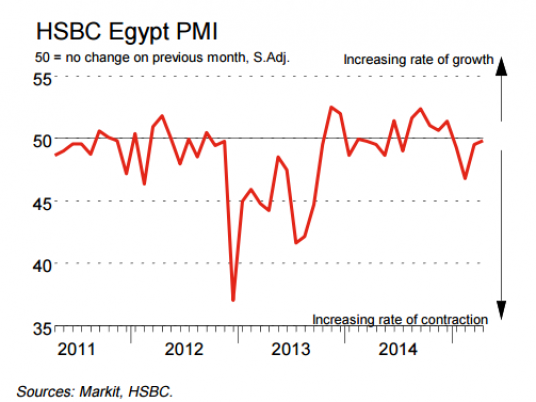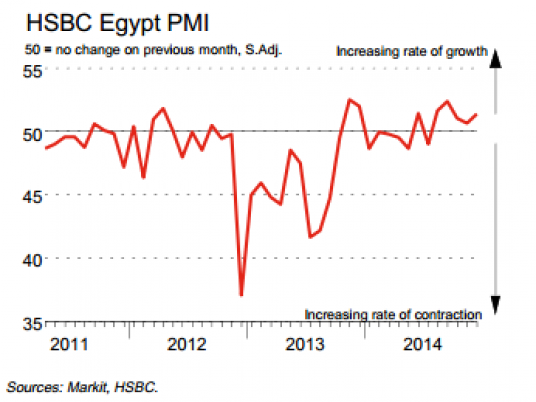
Business activity in Egypt dropped to its lowest in more than two years in November, falling the fastest since September 2013, as output and new orders declined.
Egypt has been struggling to revive its economy since a popular uprising in 2011 drove both investors and tourists away, depriving the country of foreign currency it needs for importing raw materials.
In a survey, the Emirates NBD Egypt Purchasing Managers Index (PMI) for the non-oil private sector fell to 45 points in November from 47.2 points in October, below the 50-point mark that separates growth from contraction.
Output levels dropped to a 26-month low of 42.7 points in November, down from 45.5 points in October. "Roughly 31 percent of panellists noted a fall in activity, which they mainly linked to weaker-than -expected demand," the survey said.
New orders fell for the second straight month and at the quickest rate of decline since September 2013, to 44.2 points from 46.3 in October.
"The weakness of the Egyptian pound against the US dollar was cited as the main reason behind lower new work, with firms referring to the subsequent impact on clients' liquidity," it said.
Egypt has been facing a currency crisis that economists blame on an over-valued pound. The central bank had been gradually weakening the pound, but then surprised markets by strengthening it by 20 piasters against the dollar to LE7.7301, still far from the black market rate of LE8.5.
The survey showed record declines in employment for the third consecutive month to 45 points in November from 48.3 points the month before, the fastest decline in the history of the series.
"Anecdotal evidence suggested that some workers had left voluntarily in order to search for better job opportunities."
Egyptian President Abdel Fattah al-Sisi had pledged to reduce the jobless rate to 10 percent over the next five years. Unemployment stood at 12.8 percent during the first three months of 2015, according to the government's statistics agency. Analysts believe it may be much higher.




